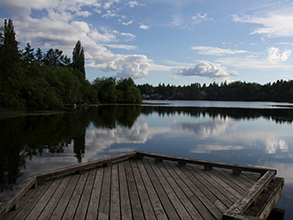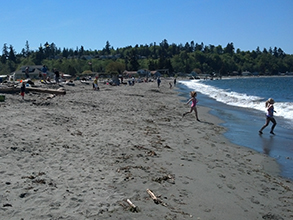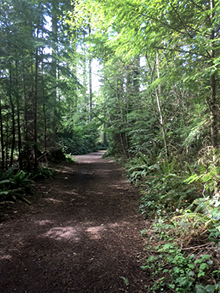 THE POWER OF PARKS
THE POWER OF PARKS
Parks have power — economic, health, environmental power and more. Fact is, we believe, parks are the most powerful aspect of every community. This is the main message in the new “Power of Parks".
Economic - Proximity to parks dictates property value
Employment - Physical fitness and parks and recreation majors have low unemployment
Environmental - Parks protect and conserve biodiversity while keeping our air and water clean
Health - Access to parks and recreation facilities aids in the control of obesity, boosts the immune system, diminishes the risk of disease, and increases life expectancy
Community - Parks help build and strengthen community ties and bring diverse populations together
Safety - Well-planned and well-maintained parks can increase public safety
 EXPLORE THE OUTDOORS
EXPLORE THE OUTDOORS
The National Recreation and Park Association is working with PBS KIDS and PBS stations across the country to promote PBS KIDS Explore the Outdoors.
The program encourages children (ages 2 to 6 years old) and families to get outdoors and spend more time at their local park. Connecting children with nature is important to their mental, physical and emotional development. Children who spend time outdoors do better in science, get more physical exercise and grow-up to be environmental stewards. Research led by environmental psychologist Nancy Wells show that children with more exposure to nature have reduced stress levels and longer attention spans. For more information and to find fun activities to do with the whole family visit PBS KIDS.
 A WALKING REVOLUTION
A WALKING REVOLUTION
The next big health care breakthrough is simple, free, enjoyable, and not a magic pill—it is walking! Recently the collaborative organization Everybody Walk! developed a report about the benefits of walking and walkability for health, business, community, and the environment. Parks and recreation should take note that the report indicates US Surgeon General Regina Benjamin, MD, MBA will be issuing a "Call to Action on Walking," aimed to help Americans improve health by walking more. Continue to be a leader in your community for walking and health and for more inspiration, check out the 13 ways you can get people moving in 2013 at the end of the report.
PARKS ARE GOOD FOR YOUR BRAIN
The scientific evidence continues to mount affirming all of our beliefs that parks and recreation are essential for good health. The latest scientific backing is from The British Journal of Sports Medicine. A recent article from the New York Times discusses the study that concludes images of green spaces and walking through green, leafy parks helps to relieve brain fatigue. Researchers monitored the cognitive impacts on a group of young adults walking through various settings and found that while traveling through the park, the walkers were mentally quieter. For more context, pair this research with NRPA’s research on parks and green space as part of a healthy habitat. Share this powerful evidence with your community to demonstrate your leadership in health and wellness!

